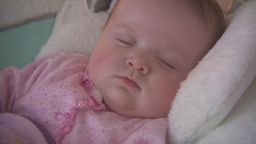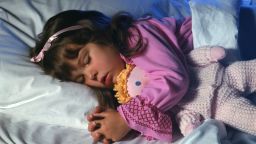Nowadays, educators frequently encounter classrooms packed with tired students who stayed awake late taking selfies or playing games on the internet.
New research suggests that children and teenagers who use cell phones, tablets, and computers at night may experience a decrease in both the amount and quality of their sleep. Interestingly, even those who do not use these technologies in their bedrooms at night are still experiencing a lack of sleep and are more likely to feel sleepy during the day, according to an analysis published in JAMA Pediatrics.
According to Dr. Ben Carter, the lead author and a senior lecturer in biostatistics at King’s College London, the study revealed a consistent trend in its findings across various countries and environments.
Carter and his team sifted through medical literature to find numerous relevant studies conducted between January 1, 2011 and June 15, 2015. They selected 20 research reports that included a total of 125,198 children, with an equal distribution of genders and an average age of 14 and a half years. Upon gathering important information, Carter and the other authors conducted their own analysis of the data.
The findings are likely unsurprising to many parents. The study revealed a clear and reliable link between using media devices before bedtime and having insufficient sleep, low quality sleep, and excessive daytime drowsiness.
Unexpectedly, Carter and his colleagues found that even children who refrained from using their devices in their bedrooms had disrupted sleep and were susceptible to similar issues. The illumination and noises produced by the technology, along with its content, could be overly stimulating.
Even though Carter acknowledges that the way data was gathered in the original studies – through self-reporting from parents and children – was a limitation of the analysis, many of us may see similarities between the findings and our own family’s routines.
Electronic bedroom
According to a 2013 survey by the National Sleep Foundation (PDF), 72% of American children and 89% of teenagers have at least one electronic device in their sleeping area. The majority of these devices are used close to bedtime, the report stated.
Carter and his colleagues suggest that the widespread use of technology has a detrimental impact on children’s sleep habits. They argue that extended screen time, such as finishing a movie or playing one more game, can delay bedtime.
The researchers clarify that the light produced by these devices can impact the body’s internal clock, which regulates biological functions such as body temperature and hormone secretion. This includes the hormone melatonin, which helps induce tiredness and plays a role in our sleep patterns. The use of electronic lights can delay the release of melatonin, throwing off our sleep-wake cycles and causing difficulty in falling asleep.
Carter and his colleagues propose that online material can have a psychological impact and disrupt the sleep of children and teenagers who may continue using their devices after bedtime.
Dr. Sujay Kansagra, director of the pediatric neurology sleep medicine program at Duke University Medical Center, emphasized the importance of sleep for children. According to him, sleep is essential for brain development, memory, self-regulation, attention, immune function, cardiovascular health, and other aspects. This statement was made in response to a new analysis, although Dr. Kansagra was not directly involved in it.
According to the author Kansagra in their book “My Child Won’t Sleep,” the most crucial time for brain development is during the first three years of life, which coincides with the period when we require and receive the most sleep. This correlation is too significant to be mere chance.
According to Kansagra, it is possible that parents did not accurately report their children’s device usage at night. However, it is more likely that the technology itself is causing disruptions in sleep hygiene. For instance, children who have access to devices in their room may be less likely to follow a consistent sleep routine, which is known to improve sleep.
Adopting healthy habits for better sleep
According to Dr. Neil Kline, a spokesperson for the American Sleep Association, sleep is crucial for a child’s proper growth and development, although the exact scientific mechanisms are not fully understood. Additionally, studies have shown a link between ADHD and certain sleep disorders.
The results of the recent research are not unexpected. According to Kline, technology has a significant effect on sleep habits, particularly during the teenage years. He draws this conclusion from both his own experiences and the accounts of other experts in the field.
Stay updated with health news by following CNN Health on Facebook and Twitter.
Check out the most recent updates and join the conversation with CNN Health on Facebook and Twitter.
Tips for good sleep hygiene involve creating a peaceful environment, which may include eliminating any distractions like electronics, television, and even pets if they disrupt sleep, according to Kline.
The National Sleep Foundation suggests having a minimum of 30 minutes without using electronic devices before going to bed for a better night’s sleep. Turn off your gadgets to improve your sleep.
Some additional tips for promoting good sleep habits include refraining from physical or mental activity too close to bedtime, setting a consistent sleep routine, reducing exposure to light before bedtime, refraining from consuming alcohol, caffeine, and nicotine close to bedtime, and creating a calm and dark sleeping space for optimal rest.
Source: cnn.com




